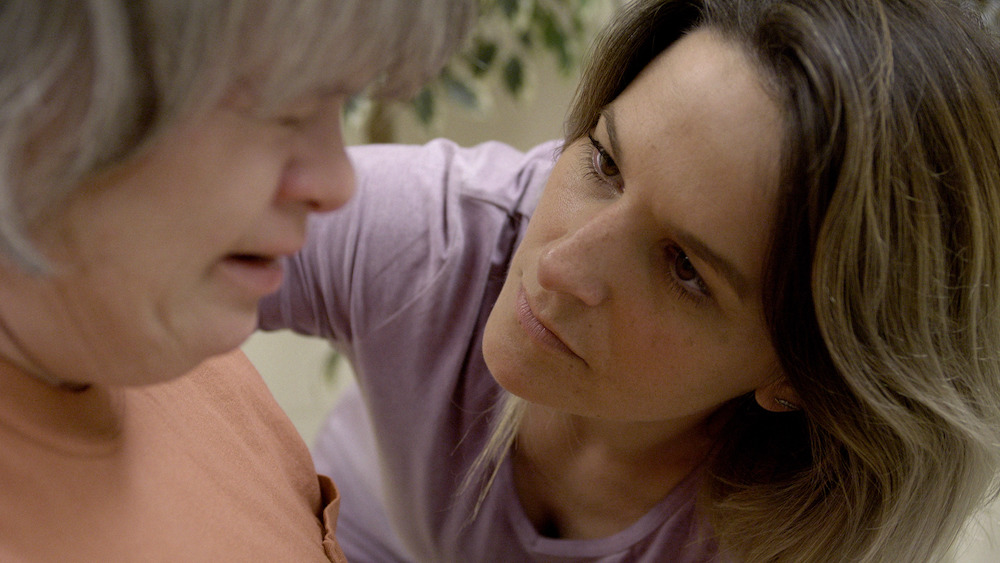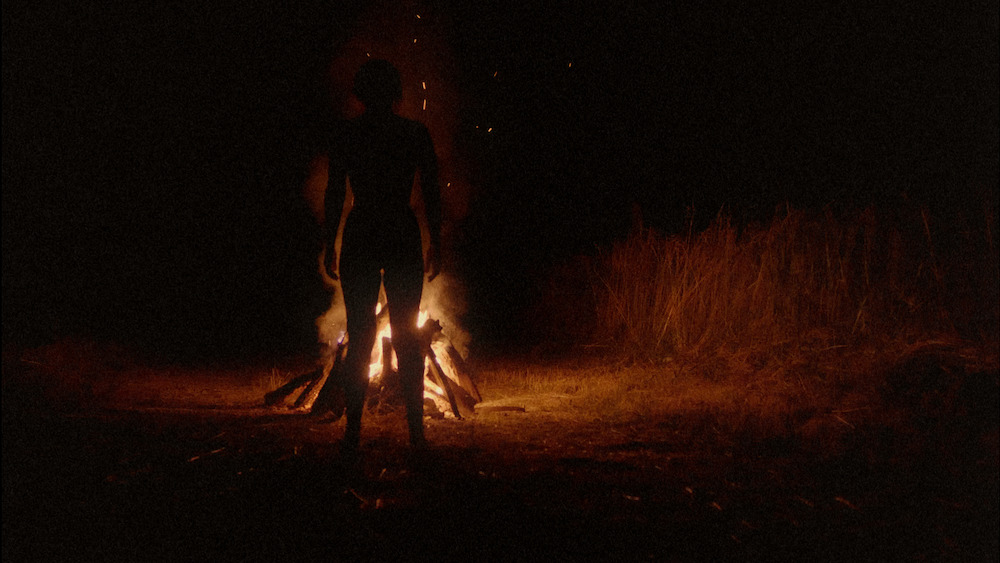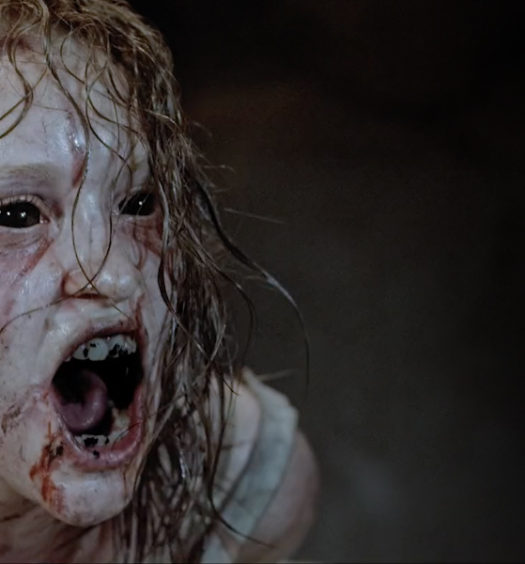When a special needs center hires Katie (Katie Groshong), they’re unaware of her dark past. Clearly troubled, and nursing a nasty set of scars, Katie soon becomes obsessed with protecting Stephanie (Stephanie Kinkle) from “the devils” that plague her thoughts. Centered around a skills center and group home for adults with Down Syndrome, Dementer offers a glimpse of a world often ignored or neglected.
Groshong (A Measure of the Sin, Jug Face) carries most of the film, accompanied occasionally by Larry Fessenden (Psychopaths, We Are Still Here) with a brief appearance but persistent voice over. Kinkle, sister of writer/director Chad Crawford Kinkle (Jug Face), also features heavily, albeit with limited dialogue. Other characters include the other clients and workers at the skills center, but the story mainly centers around Katie and Stephanie’s relationship. Stephanie’s increasing illness ultimately motivates Katie to take drastic measures to drive the story towards a dark climax.

extremely personal
Chad Crawford Kinkle took an extremely personal direction for his second feature. However, in doing so he brings the lives of developmentally disabled adults to a broader audience. Too often, horror writes use disabilities as a crutch to create conflict or sympathy. Dementer, however, never feels manipulative or exploitative because, naturally, it’s neither. Kinkle simply wants to highlight the authentic lives of people who, while often neglected or forgotten, make up a significant chunk of the population.
Alas, from a strict narrative and technical perspective, Dementer sadly comes up short. The subdued atmosphere and slow pace may ultimately prove too much for fans of more straightforward bump-in-the-night films. Switching, almost at random, between the ‘present’ narrative and Katie’s flashbacks works initially. Eventually, however, this pattern becomes tiresome as it substantially overstays its welcome.
never feels manipulative or exploitative
Kinkle also worked with what appears to be a very limited budget. Daytime footage simply lacks the dynamic range and depth we’ve come to expect from modern indie horror. The more interesting nighttime, hyper-realized footage is, sadly, too few and far between. A simple, organic score underlies most of the film, further contributing to a tense, unsettling atmosphere. But the various technical limitations simply prove insurmountable in generating any truly effective scares.
Ultimately, these limitations make Dementer difficult to recommend beyond those already drawn to the subject matter being highlighted. This is, of course, rather unfortunate as a wider audience could benefit from exposure to the representation on display here. All that being said, Kinkle should be congratulated for creating an honest portrayal of a neglected minority while also producing a thematically creepy horror movie.
Dementer made its world premiere at the Nashville Film Festival on October 10, 2019.

‘Dementer’ Delivers Demonic Devastation [Review]































